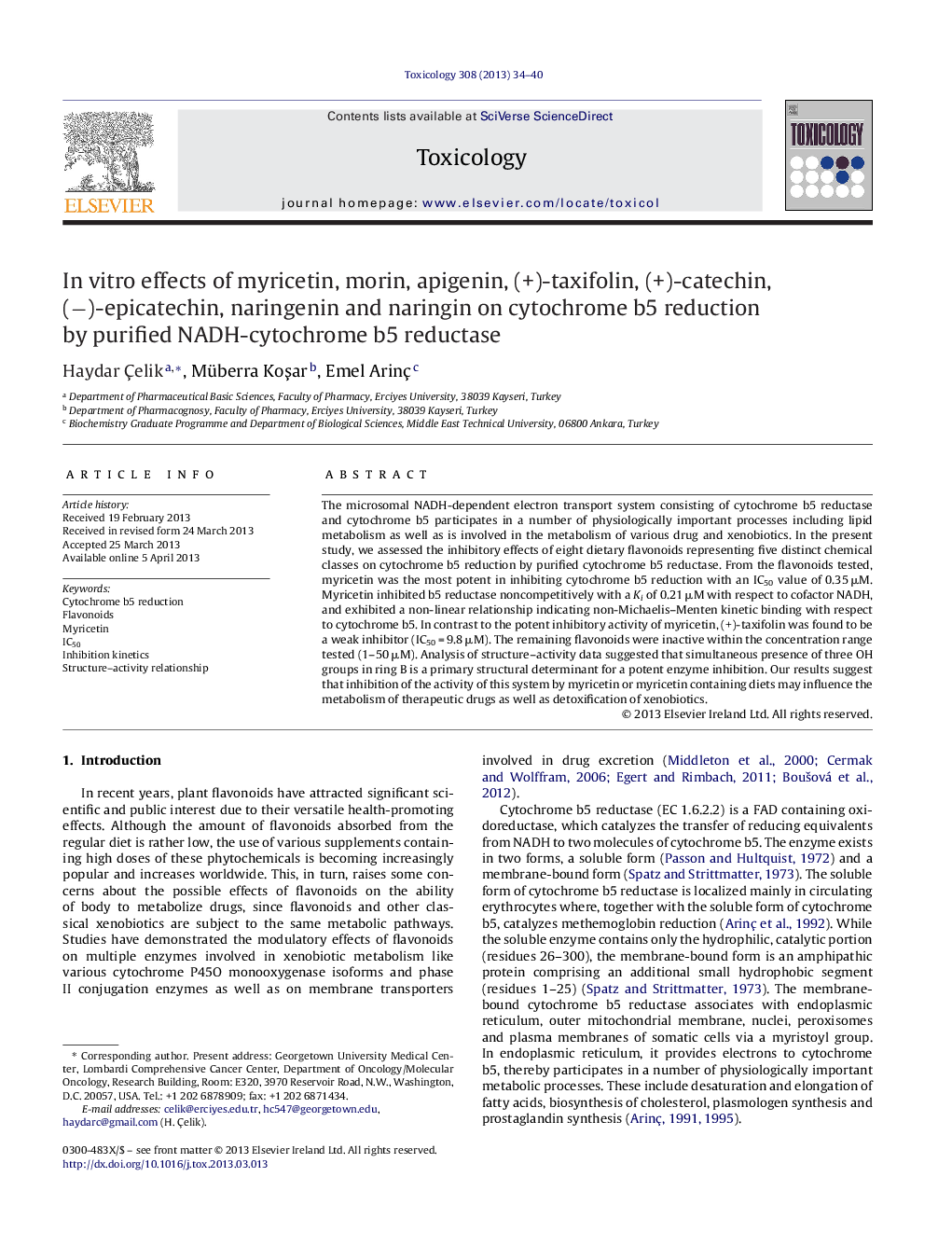| Article ID | Journal | Published Year | Pages | File Type |
|---|---|---|---|---|
| 5859431 | Toxicology | 2013 | 7 Pages |
â¢We assessed inhibitory effects of 8 dietary flavonoids on cytochrome b5 reduction by purified NADH-cytochrome b5 reductase.â¢The flavonol myricetin was the most potent in inhibiting cytochrome b5 reduction with an IC50 value of 0.35 μM.â¢We investigated kinetics of myricetin-induced inhibition in detail.â¢We explored the structure-inhibitory activity relationship of compounds.â¢Modulation of cytochrome b5 reduction indicates a potential for myricetin to lead to some food-drug/xenobiotic interactions.
The microsomal NADH-dependent electron transport system consisting of cytochrome b5 reductase and cytochrome b5 participates in a number of physiologically important processes including lipid metabolism as well as is involved in the metabolism of various drug and xenobiotics. In the present study, we assessed the inhibitory effects of eight dietary flavonoids representing five distinct chemical classes on cytochrome b5 reduction by purified cytochrome b5 reductase. From the flavonoids tested, myricetin was the most potent in inhibiting cytochrome b5 reduction with an IC50 value of 0.35 μM. Myricetin inhibited b5 reductase noncompetitively with a Ki of 0.21 μM with respect to cofactor NADH, and exhibited a non-linear relationship indicating non-Michaelis-Menten kinetic binding with respect to cytochrome b5. In contrast to the potent inhibitory activity of myricetin, (+)-taxifolin was found to be a weak inhibitor (IC50 = 9.8 μM). The remaining flavonoids were inactive within the concentration range tested (1-50 μM). Analysis of structure-activity data suggested that simultaneous presence of three OH groups in ring B is a primary structural determinant for a potent enzyme inhibition. Our results suggest that inhibition of the activity of this system by myricetin or myricetin containing diets may influence the metabolism of therapeutic drugs as well as detoxification of xenobiotics.
